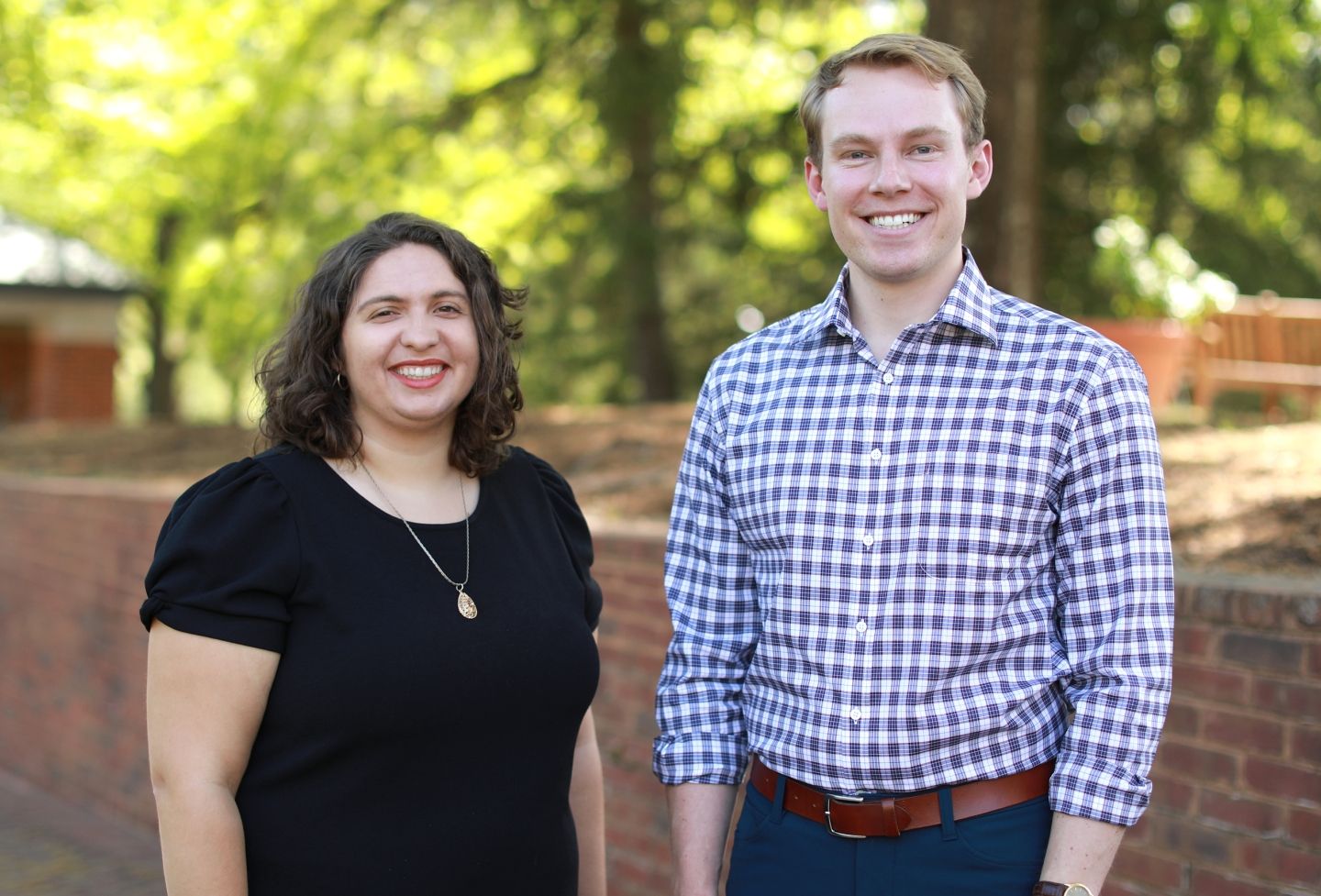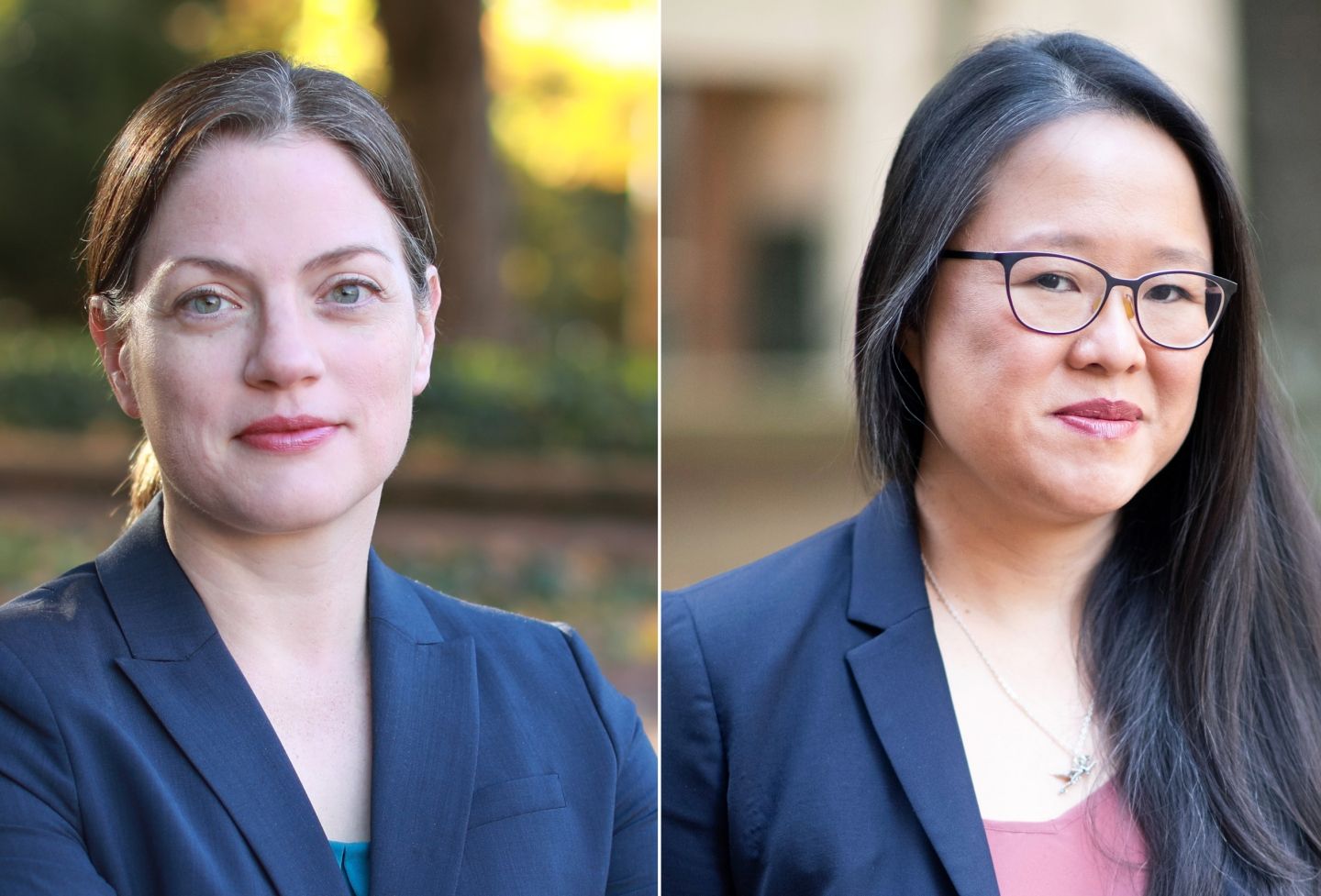Cathy Hwang, an expert in business law whose work merges theory with real-world practice, will join the University of Virginia School of Law faculty in the fall.
“Cathy Hwang is a fantastic addition to our faculty,” Dean Risa Goluboff said. “She is a rising star in business law whose personal M&A experience enables her to bring a fresh approach to corporate contracts and deals. She has also won accolades for her teaching and mentoring of students. I know that our entire community will benefit from her intellect, her energy and her generosity.”
Hwang currently serves as an associate law professor at the University of Utah. Two of her articles, “Deal Momentum” and “Unbundled Bargains: Multi-Agreement Dealmaking in Complex Mergers and Acquisitions,” have been recognized as top 10 corporate and securities articles of the year in Corporate Practice Commentator polls of academics in 2018 and 2017, respectively. She won the College of Law’s Early Career Faculty Award in 2018.
Hwang is a graduate of the University of Chicago Law School and Pomona College, where she majored in economics and international relations.
After law school, Hwang worked for three years as an associate for Skadden, Arps, Slate, Meagher & Flom in New York City, focusing on mergers and acquisitions.
“I was really looking for a way to keep doing substantively the work that I found interesting, and pair that with some of the mentoring aspects of what I enjoyed about my job,” she said of her turn to academia.
She served as a fellow at Stanford Law School’s Rock Center for Corporate Governance before joining the Utah faculty in 2016. She will teach Mergers and Acquisitions, Corporations and Deals at UVA Law.
“I think of myself as bridging the gap between traditional contract theory and what is happening in the real world,” she said. “I interview deal lawyers — people who are on the front lines of creating deals — and ask them why they do things in a particular way or why it is that they design contracts in the way that they do. And I try to see if that matches up with our theoretical understanding of why and how people engage in contract drafting.”
In “Deal Momentum,” which was selected for the Stanford/Yale/Harvard Junior Faculty Forum, she talked to parties to nonbinding preliminary agreements in M&A deals. She found that the parties set up these small preliminary deals much closer to the time they enter into a real contract than theorists believed, and argues they are more like signposts that a deal is about to occur than a real contract.
“Most scholars have thought of preliminary agreements as first dates,” she said. “But if you start thinking about them as engagements and realize that this actually signifies a much later process in that relationship, then it’s not really that surprising. A lot of people who get engaged end up married.”
In “Unbundled Bargains,” Hwang revisited her time as an associate, when she worked extensively on ancillary agreements as part of working on a merger.
“I like to joke that when I was thinking about that article, it was almost like an existential crisis,” she said. “Like, what did I do when I was in practice and did it matter at all?”
Hwang found that merger parties use the agreements to streamline the contract drafting process. Smaller issues can be tackled by associates, she said, and contracts that require more expertise can be addressed by a specialist.
“You’re just keeping the agreement to the minimum number of parties that need to be in it, so you can be more specific about the parties, which also reduces litigation risk on the back end.”
Professor Quinn Curtis, vice chair of the Law School’s Appointments Committee and also an expert in the school’s John W. Glynn, Jr., Law & Business Program, said in a short time Hwang “has established herself as a prolific scholar of contracts.”
“Her knowledge of merger agreements, drawn from practice and interviews with practitioners, provides a unique and important perspective,” Curtis said. “She’ll be a great addition to our business law faculty.”
Hwang said she is motivated to teach on a faculty where many contracts luminaries have taught. Virginia’s tradition of nurturing women for positions of leadership was also a draw.
“One of the things I was most excited about was just being able to learn from Risa and [Vice Dean Leslie Kendrick ’06], and to be part of whatever is in the water here.”
Hwang is the first woman in her family to go to college. A family member — and the fictional character Nancy Drew — inspired her decision to pursue law from an early age. When her future aunt-in-law asked her what she wanted to be when she grew up, Hwang responded that she wanted to be a girl detective.
“She was like, ‘That’s not a real job. If you like the idea of being a girl detective, maybe you should be a lawyer instead.’”
Hwang’s husband, Thomas Haley, will also join the UVA Law faculty, as a research assistant professor. Now a visiting assistant professor of law at the University of Utah, Haley focuses on the intersection of law and technology, particularly matters of privacy. His forthcoming article, “Data Protection in Disarray,” was selected via blind review for the upcoming Junior Faculty Forum for Law and STEM at Stanford Law School.
Follow Cathy Hwang on Twitter at @cathyhwang47.
Related Scholarship
- “Shadow Governance” (with Yaron Nili), 108 Calif. L. Rev. __ (forthcoming 2020).
- “Faux Contracts,” 105 Va. L. Rev. 1025 (2019).
- “Deal Structure” (with Matthew Jennejohn), 113 Nw. L. Rev. 279 (2018).
- “Deal Momentum,” 65 UCLA L. Rev. 376 (2018).
- “Unbundled Bargains: Multi-agreement Dealmaking in Complex Mergers & Acquisitions,” 164 U. Penn. L. Rev. 1403 (2016).
- “The Value of Uncertainty” (with Benjamin P. Edwards), 110 Nw. U. L. Rev. 283; 110 Nw. U. L. Rev. Online 19.
- “The New Corporate Migration: Tax Diversion Through Inversion,” 80 Brooklyn L. Rev. 807 2015.
Founded in 1819, the University of Virginia School of Law is the second-oldest continuously operating law school in the nation. Consistently ranked among the top law schools, Virginia is a world-renowned training ground for distinguished lawyers and public servants, instilling in them a commitment to leadership, integrity and community service.


